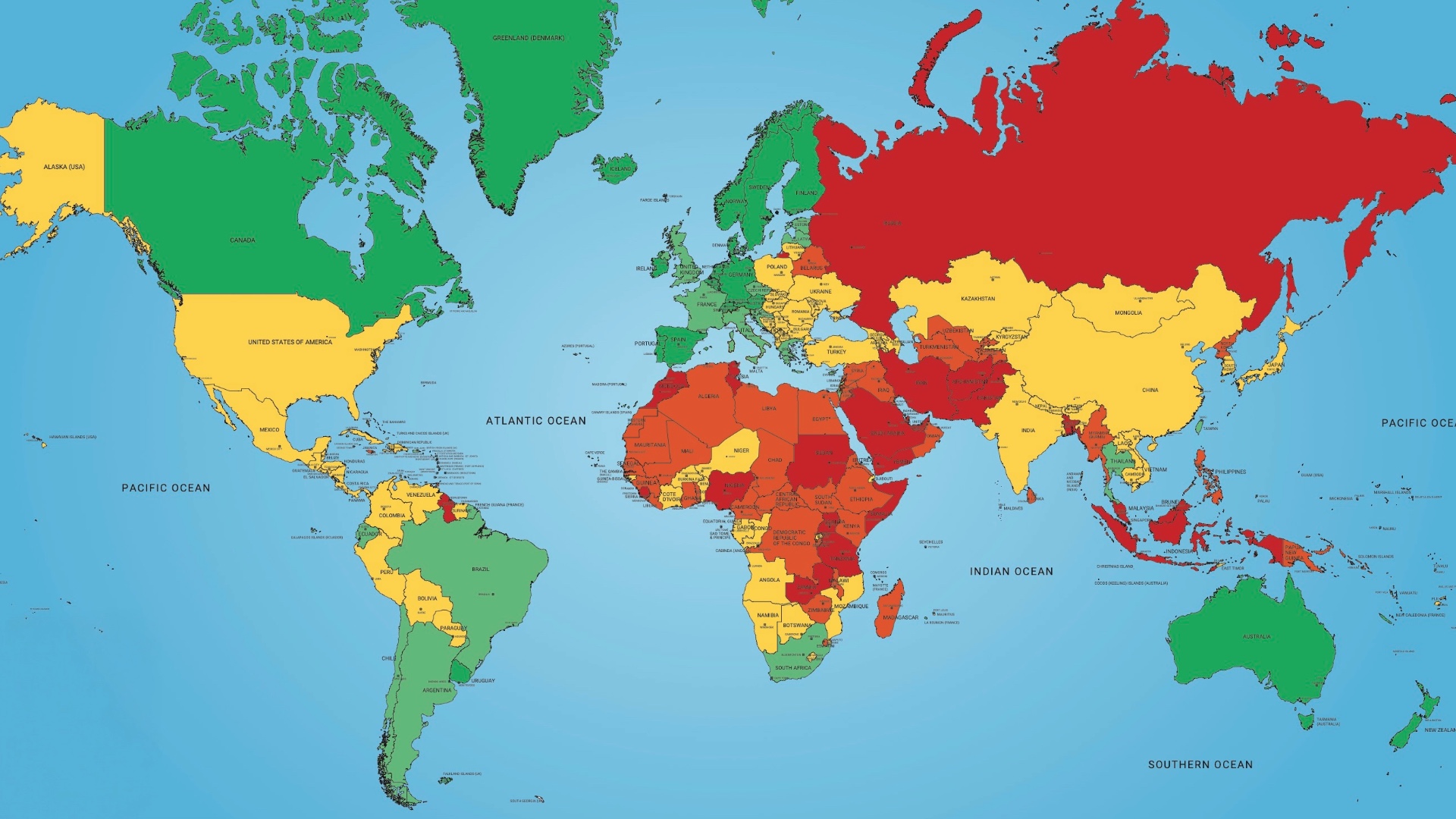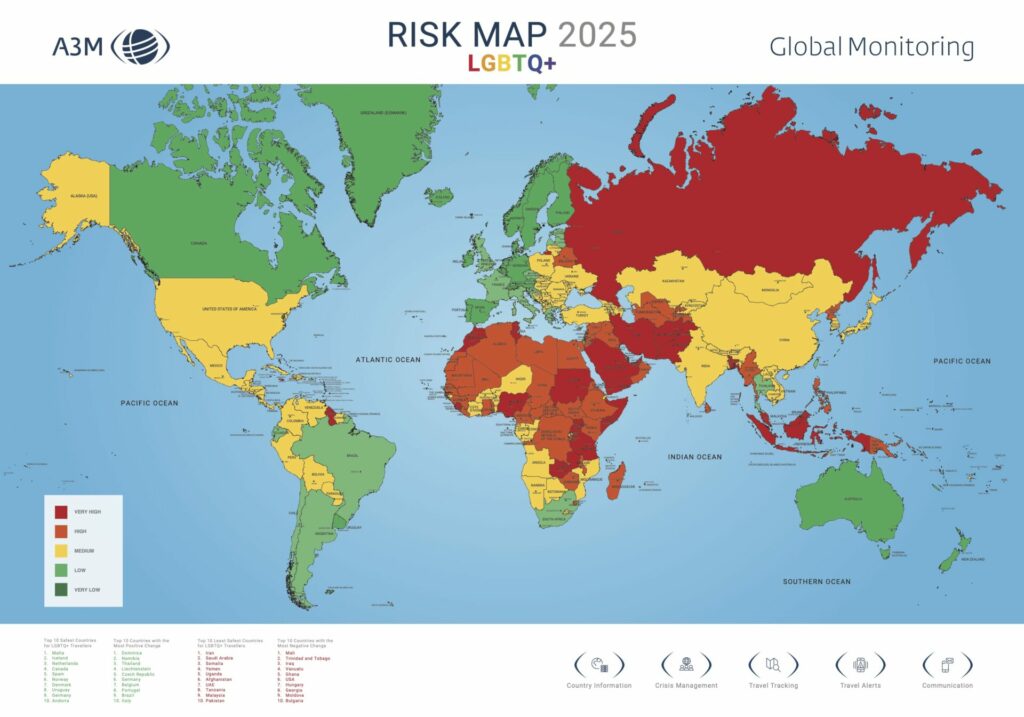LGBTQ+ Risk Map: where queer travellers feel safe – and where they don’t
The survey, run with ITB Berlin and Diversity Tourism, highlights large gaps between legal rights, social acceptance and real-life experiences
By Callum Wells

A3M Global Monitoring has released its LGBTQ+ Risk Map 2025, showing how safe queer travellers feel around the world.
The survey, run with ITB Berlin and Diversity Tourism, highlights large gaps between legal rights, social acceptance and real-life experiences.
Updated every year, the map ranks countries from “very high-risk” to “low-risk”. It comes alongside ITB Berlin’s first in-depth survey of LGBTQ+ traveller experiences, carried out between December 2024 and April 2025. The findings will be discussed at ITB Berlin from three to five March 2026.
“The survey for the first time offers a deeper insight into the personal experiences of queer travellers worldwide” – Ramona Zaun, LGBTQ+ commissioner at ITB Berlin
The survey, Perceptions and Experiences of LGBTQ+ Travellers, asked 16 questions on acceptance, legal equality, treatment by authorities, healthcare and public displays of affection. Experts were also interviewed to give extra context.
Ramona Zaun, LGBTQ+ commissioner at ITB Berlin, said, “The survey for the first time offers a deeper insight into the personal experiences of queer travellers worldwide – an important step towards putting objective safety ratings into the context of personal perspectives. Irrespective of not being statistically representative it provides a robust qualitative basis. We take the findings very seriously and will incorporate them into further developing our LGBTQ+ segment at ITB Berlin. We are fully committed to promoting LGBTQ+ travel not just during the trade show but 365 days a year.”
Canada and Spain came out on top. One hundred per cent of respondents said LGBTQ+ people are treated with respect, and public affection was considered safe by 90 per cent in Spain and 71 per cent in Canada. Police were mostly supportive.

Transgender and intersex travellers reported higher levels of discrimination across most countries
The USA was split. Only around a third of travellers said queer couples can show affection safely or that police are LGBTQ+ friendly. Germany, despite progressive laws, also scored cautiously, with about half of respondents feeling safe in public or treated equally.
Transgender and intersex travellers reported higher levels of discrimination across most countries.
Experts said Brazil, Chile and Peru are tolerant in tourist areas, while China and Dubai are pragmatic if travellers stay “discreet”. Spain was consistently praised, especially Madrid, Barcelona, the Mediterranean coast and the Canary Islands. Younger travellers were more sensitive to restrictions than older generations.
The Risk Map shows progress in Dominica, Namibia, Germany and Thailand, but setbacks in Iraq, Mali, Trinidad and Tobago and Georgia. A3M plans to create a global safety network for LGBTQ+ travellers. “Safety is more than a right – it is about perceptions and experiences,” the survey concludes.
